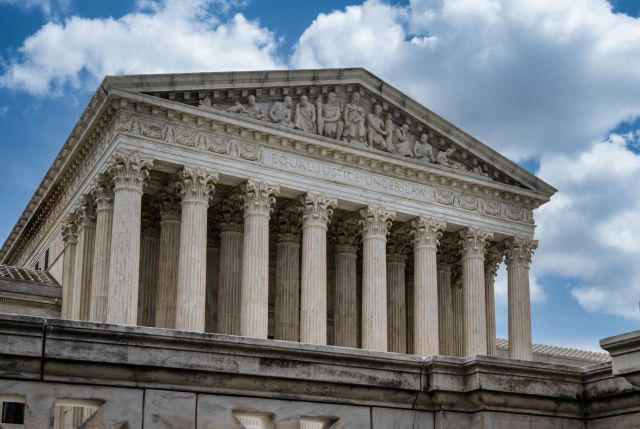The Cool Down
<?XML:NAMESPACE PREFIX = "[default] http://www.w3.org/2000/svg" NS = "http://www.w3.org/2000/svg" />Follow
Expert sounds the alarm after U.S. Supreme Court sides with couple wanting to build house at protected site
Story by Laurelle Stelle •6h
HAVE YOUR SAY
Poll: What do you think of the Supreme Court ruling?
Sacketts family prevails in Supreme Court battle with EPA© Provided by The Cool Down
Since the creation of the Clean Water Act in 1972, the federal government has had the authority to protect bodies of water throughout the U.S. from pollution. This traditionally included wetlands, which play a vital role in feeding open bodies of water like rivers and lakes.
However, thanks to a Supreme Court ruling in May, this federal protection has been removed from many crucial wetlands across the country, the Guardian reports.
What happened?
According to the Guardian, Michael and Chantell Sackett are Idaho residents who bought a half-acre lot in 2004 near Priest Lake, one of the state’s largest bodies of water. They intended to build a home there and started to fill in the marshy site with gravel.
The Sacketts didn’t know that the site was a protected wetland, which they would need a permit to fill in, the Guardian explains. The EPA stepped in to stop construction and issued serious fines for the work already done.
The Sacketts began a 15-year legal battle, which made it to the Supreme Court this year. The central question was whether the EPA had the authority to prevent the Sacketts from building on a wetland area.
The Supreme Court ruled in the Sacketts’ favor. It found that the Clean Water Act applied only to “wetlands with a continuous surface connection to bodies that are waters of the United States in their own rights.”
Why does this decision matter?
As the U.S. Geological Survey explains, wetlands are crucial to America’s water system and environment. They catch and filter water before it reaches rivers and lakes, keeping those sources clean for human use — even if the wetlands don’t have an obvious surface connection to those bodies of water.
Wetlands also absorb stormwater to prevent floods, protect coastlines from eroding, and provide food and shelter to wildlife that people rely on, including young fish and shellfish.
If the EPA doesn’t have the authority to protect wetlands, those areas may be polluted, filled in, or drained in ways that harm whole communities. The former wetland and the surrounding area would experience increased flood risks, and fish populations in nearby waters would drop. People who rely on those water sources for household use or crops would also see a decline in water quality and safety.
What’s being done about the change?This decision came at a time when the Clean Water Act was being strengthened by the EPA and the Biden administration, so the federal government may take action to address the change.
Jim Murphy of the National Wildlife Federation also called on Congress and state governments to create new laws to protect the wetlands that have suddenly been left exposed.
“For 50 years the Clean Water Act has been instrumental in revitalizing and safeguarding drinking water sources for people and wildlife, wetlands for flood control, and habitats that sustain our wildlife heritage,” said Murphy. “The court’s ruling removes these vital protections from important streams and wetlands in every state. We call on both Congress and state governments to step in, plug the gap, and protect our threatened waters and the people that depend on them.”
Whales are ingesting up to 10 million pieces of microplastic per day: ‘Like training for a marathon and eating only jelly beans’© Provided by The Cool Down
Join our free newsletter for cool news and actionable info that makes it easy to help yourself while helping the planet.
Expert sounds the alarm after U.S. Supreme Court sides with couple wanting to build house at protected site first appeared on The Cool Down.


